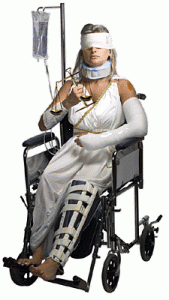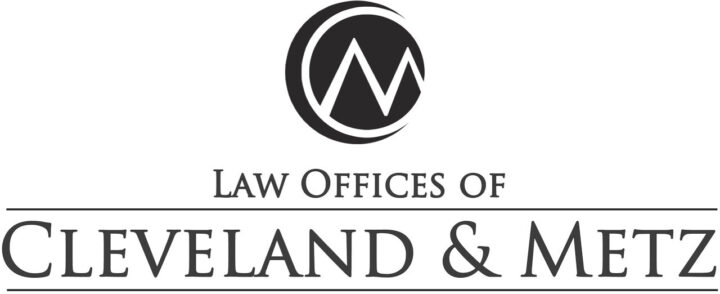California Workers Compensation Law
California Workers Compensation Law
What is California workers compensation?
California Workers Compensation Law is a no-fault system for injuries connected with your employment, whether they are specific injuries or a disease or disabling condition. Your employer is required to pay for Workers Compensation Insurance to cover all its employees. You are not required to be represented by an workers compensation attorney to make a claim but remember that your employer and its Insurance Company will be represented, at least, by an experienced claims adjuster and probably, also, by a competent attorney. In case of a dispute, you too should be properly represented or you will be at a serious disadvantage as there are many pitfalls for the unrepresented injured worker.
What benefits are available?
Under California Workers Compensation Law you are entitled to certain benefits. They fall into the following categories:
- Medical benefits – Medical benefits include all medical and hospital benefits reasonably necessary to cure or relieve from the effects of the injury. This includes reimbursement at 50 cents per mile (during 2010, rates vary for different years) for travel to and from the doctor’s office. If your employer or their insurance company has not set up a Medical Provider Network, then your employer has a right to send you to a doctor of his choice for the first 30 days of treatment but you have a right under certain conditions to change doctors. After January 1, 2005, if your employer or their insurance company has established a Medical Provider Network, you may be required to get all medical care from that network, although you will be entitled to change doctors within the network. If your employer does not properly notify you of the network, you may be able to choose a doctor outside the network.
Any time you have a work-related injury which requires medical attention, you will be eligible for these benefits and they can be awarded into the future as needed. If your employer delays in determining whether to admit that you were injured at work, they will still be responsible for medical care up to $10,000.00 while they decide. If they deny you were injured at work, they are not responsible for medical care unless it is later determined by the court that your injury was caused by your work.
- Temporary Disability – If your injury or condition requires you to miss more than three days of work or causes hospitalization, you should receive temporary disability benefits. Temporary disability is paid at the rate of two-thirds of your average weekly earnings (A.W.E.). The maximum average weekly earnings considered varies, depending on the date of your injury. There are also minimum temporary disability rates. As of 2015, the minimum is $165.49 and the maximum is $1103.29 per week. You will need medical proof that you are unable to work. These workers compensation benefits are usually paid bi-weekly.
- Permanent Disability – If your injury or condition results in some permanent impairment, you will be eligible for Permanent Disability. The amount is determined by a complex formula which reduces the disability as described by the doctor to a percentage and then raises or lowers that percentage depending on the body part you injured , your age and your occupation. There is a certain dollar amount payable for each percentage, ranging from $690.00 for one percent to $242,257.50 for 99.00 percent, for injuries in 2006 through 2012. Permanent disability dollar amounts in 2013, 2014 and forward have increased rates based on Senate Bill 863.
If you are one hundred percent disabled, you will receive your temporary disability rate for life. If your  permanent disability is greater than 70%, you also get a “life pension.” That is a different amount per week for the rest of your life, after the amounts described above are paid out. Life pensions, including those for 100% disability are subject to a cost of living increase tied to the Average Annual Weekly Wage for the State of California.
permanent disability is greater than 70%, you also get a “life pension.” That is a different amount per week for the rest of your life, after the amounts described above are paid out. Life pensions, including those for 100% disability are subject to a cost of living increase tied to the Average Annual Weekly Wage for the State of California.
It is possible to have a ratable permanent disability and still be able to return to your old job. Permanent disability benefits for all percentages less than 100% are paid at the rate of $140.00 to $290.00 per week (depending on the amount of disability and the date of injury) paid bi-weekly until the dollar amount is paid. Bi-weekly advances should be paid as soon as you are no longer eligible for temporary disability if the insurance knows you have some permanent disability depending on your date of injury.
For injuries on or after January 1, 2005, your permanent disability dollar amount will vary depending on whether your employer offers you a job to return to, which is either your usual job or a modified or alternate job that pays within 85% of your usual job. If the employer has more than 50 employees and offers you job, you get a 15% reduction in your permanent disability, whether or not you take the job. If he does not offer a job, you get a 15% increase in your weekly rate. For injuries after January 1, 2013 or later there is no longer and increase or decrease and the disability is at a flat rate.
- Vocational Rehabilitation – You may have heard that injured workers are entitled to retraining or Vocational Rehabilitation. That is no longer true; those benefits were eliminated for all injuries which occur on or after January 1, 2004 by the reforms. For some reason many doctors continue to put in their report a paragraph about the injured worker being eligible (or not) for vocational rehabilitation. Don’t let that fool you. There is no longer any means to receive those benefits even if you were injured before that date.
If you were injured after 1/1/04, you are eligible for a Supplemental Job Displacement Benefit, or “voucher” which can only be used for a training school. The amount depends on your level of disability, with a maximum of $10,000.00 You may use 10% of the voucher to pay a counselor to help you find appropriate training. For injuries after 2013, the voucher is paid at a flat rate of $6000. Voucher cannot be settled in a lump sum settlement.
- Death Benefits – Certain persons dependent for support or partial support on a deceased employee may be entitled to Death Benefits if the death was related to employment. It is not necessary that the death occur at work if the condition which caused the death is job related.
- Compensable Consequences -If your initial work related injury causes any other problems, you are entitled to all benefits for these subsequent “compensable consequences” just as if they occurred at work. Some examples are
(1) Psychological depression caused by severe pain of your work injury,
(2) A fractured wrist which occurs in a fall caused by your industrially injured knee giving way,
(3) Injuries incurred in an automobile accident on the way to the doctor for your work injury,
(4) Injuries caused by medical malpractice of a doctor treating your industrial injury,
(5) A back injury caused by limping because of your industrial knee or ankle injury. Keep this in mind if anything like this happens to you.
For injuries after January 1, 2013, there may be no permanent disability for certain compensable consequences such as psychological stress, sleep impairment, or sexual dysfunction.
Workers compensation is not the same as a civil case
All of the above are “benefits” and are not the same as the “damages” you receive in a non-industrial “civil case” like a car accident. The benefits are usually less than the award in other type accidents but California Workers Compensation Law has the advantage of being a no-fault system. Therefore, you do not need to prove the accident or injury was anyone else’s fault. You can recover if you tripped over your own feet, if it happened at work.
When to apply
You should notify your employer as soon as you can after you are injured or after you discover that your condition may be related to your job. At that time you should ask your employer for a claim form. You complete lines 1 through 7 and sign on line 8. The employer completes the rest which gives you the name, address, and phone number of the Workers Compensation Insurance Company which covers your injury. If your employer refuses to give you a claim form, consult your attorney If you received some benefits and your condition gets worse you may be able to re-open your case up to five years after the date of injury. If there is any question about the time limits, do not hesitate to consult your workers compensation attorney.
Related civil claims
It may be that a defective product (chemical, machine, etc.) or a negligent “third party”(not employed by your employer) is a cause of your injury. In this case, you are entitled to your workers compensation benefits and to a civil claim or lawsuit against the other parties. However, in such cases, the Workers Compensation Insurance Company may be entitled to reimbursement from your “third party” claim. Your attorney can explain this and help to arrange the most favorable settlement for you. If you believe that you may have been injured as a result of any defective product or the negligence of any one not employed by your employer, you should be sure your attorney knows about this possible civil claim.
Doctors
In order to prove your permanent disability claim your work injury must be described in the terms used by the Workers Compensation Board to “rate” permanent disability. For this reason, you may be referred by your attorney and the insurance company to an agreed doctor who will examine you and write reports. This doctor may not be the same doctor who has provided your treatment. If they cannot agree, or if you do not have an workers compensation attorney, you may be required to request a list of three doctors from the state.
If you have no workers compensation attorney, you may pick any one of the three names on the list. If you are represented by an attorney, your attorney and the insurance company (or their attorney) will each be allowed to strike one name from the list. The remaining doctor will provide an alternate opinion to that of your treating doctor.
It is important that you give an accurate history of your injury and disability to each of the doctors you see because it is from these reports that the determination of the dollar amount of your permanent disability benefits is calculated. Before attending any such exam you should make notes for yourself so you don’t forget any important facts or symptoms and you should briefly discuss these notes with your workers compensation attorney.
Making a material false statement to gain advantage in a workers’ compensation case is a crime. That means you should give an accurate history to the doctors. If you lie to a doctor or insurance adjuster about your history or about your injury, you can go to jail.
Additional benefits and penalties
Your attorney can describe for you other features of the Workers Compensation laws which include penalties recoverable by you from your employer for discriminating against you because you were injured or filed a claim, for committing serious and willful acts which endangered the safety of his employees, and for failing to have Workers Compensation Insurance. The Insurance Company or the uninsured employer may be liable for penalties if they unreasonably delay payment of any benefits to you. There are automatic Penalties of 10% for failure to pay benefits on time. Normally you should receive your check every 14 days. You should save the envelope from each to confirm whether the next check was mailed on time.
Settlement or trial
Many cases are settled without trial. The settlements are of two kinds. In a Compromise and Release, you give up all rights to future benefits and settle for a lump sum. This is usually only possible if you are no longer employed by the employer you are settling with. The other form of settlement is to agree to the same terms that judgment would probably take. This is called a Stipulated Findings and Award and you generally retain your future medical benefits and the Permanent Disability benefits are paid bi-weekly. That is also the case when there is a trial and an award from the judge.
The trial of a Workers Compensation case is not as formal as a civil trial. There are no jury trials in California Workers’ Compensation cases. The judge is an Administrative Law Judge. He or she is required to interpret the law liberally in favor of providing workers compensation benefits.
Attorney fees and costs
The workers compensation attorney fees are set by the Workers Compensation Judge in each case. In the Los Angeles area they are generally 15 percent of your award. They are deducted from your award. The attorney will be paid directly by check from the Insurance Company just as you are.
Payment to the doctors will be separate and not deducted from your settlement. You will not be required to pay any money to the attorney or anyone else, out of your own pocket. There are no filing fees in a Workers’ Compensation case.
California Workers Compensation Law is a complex and specialized field of law. This memorandum attempts to touch on the main points but your workers compensation attorney can provide you with an explanation of the law as it affects your particular injury.
